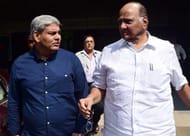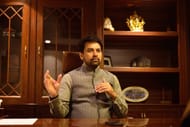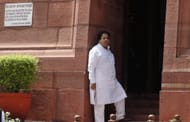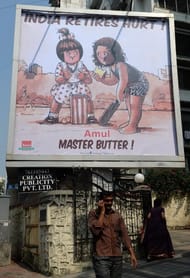A Justice RM Lodha-led panel put forward numerous recommendations to make the BCCI a better-run organisationThe Supreme Court-appointed Lodha Committee announced a slew of changes in the way cricket is run in India right from the grassroots level to the Working Committee of the BCCI, the BCCI’s highest decision-making body.The panel comprises of Lodha, a retired chief Justice of India along with other judges of the Supreme Court, R Raveendran and Ashok Bhan and was formed primarily to decide the fate of Raj Kundra, Gurunath Meiyappan and their respective franchises along with the role of Sundar Raman in the 2013 IPL fiasco and to prevent further frauds and conflict of interest.In June 2015, the recommendatory committee made several stern decisions which included banning India Cements and Jaipur IPL, the owner of their respective franchises for 2 years and banning both Kundra and Meiyappan from taking part in any cricketing activity.Leaving where they left off, the Lodha committee responded with even more stern measures in an attempt to streamline the working of the BCCI and make it more transparent. Let us take a look at some of the biggest takeaways of the report released yesterday.
#1 Legalise Cricket Betting in India

Taking a realistic view on betting was the very reason why the Supreme Court formed the panel and the recommendation was probably one of the most controversial ones by committee and definitely the one which invited most mixed reactions.
With a view to legalise betting for all and sundry except cricket players, officials and administrators, the committee stated that betting is a 400-billion-dollar business practised around the globe and should be legalised in India. A recent report sized the Indian market at $60 billion annually.
Currently, the fine for betting is, believe it or not, 200 rupees or up to 3 months in prison. Not surprisingly hence, no person in India has ever been charged or sought after.
Legalising betting will mean that the trivial fine and imprisonment will no longer be enacted but more importantly, the money that one earns whilst betting on cricket matches can now be taxed at the MMR (maximum marginal rate of 33.99%) and reduces the circulation of black money in the Indian market to a great extent.
It is an open secret that betting practices are rampant in our country. Legalising the same will only give the business a legal name and purpose. The revenue that can be generated by bringing income earned from betting is bound to be significant enough to impact our economy in a positive manner and the move is a welcome one from not only the entertainment point of view but also from the purview of economic development.
Betting on cricket matches is already legal in a lot of countries across the globe including the United States of America, England and South Africa.
(with valuable inputs from Advocate Umesh Chhangani)
#2 One State, One Vote

In an attempt to bring all states on the same playing field, the committee has recommended that each state will have one vote and institutions like Railways and Services which do not have a direct link with any state in India will not be allowed to vote nor will Cricket Club of India and National Cricket Club, who have no cricketing activities to show.
This is another welcome move by the committee as the vote bank of a lot of regions will now break and make the voting process more even.
As an example, Maharashtra currently has 3 votes from 3 of their playing regions – Mumbai, Maharashtra and Vidarbha, looked after, directly or otherwise by bigwigs such as Sharad Pawar, Ajay Shirke and Shashank Manohar.
If the recommendation is followed, then there will only be one vote from all these regions combined, thus dismantling the current vote-banks of the respective factions.
#3 Age restrictions and cooling periods

The committee has also suggested putting an age cap on the on the office bearers of the apex cricketing body of the nation. The recommendation is that no one can hold office in the BCCI who is more than 70 years of age.
The committee has further recommended that there will be a cooling off period of a single term after an individual has held office for 2 consecutive terms.
Lastly, the panel has suggested doing away with zonal nominations for president's post allowing it to be a free-for-all affair.
The cooling off period coupled with the absence of zonal nominations ensures that power will not be vested in the hands of a select few for decades anymore as has been the case for far too long.
However, one wonders if the age cap of 70 years is necessary as a wise old head in the mix of events is definitely the need of the hour. The age cap will affect the likes of N Srinivasan (71), Niranjan Shah (71) and Pawar (75), some of the hardened leaders of the BCCI.
It also dampens secretary Anurag Thakur’s presidential ambitions as it will force him to step aside after this tenure.
#4 Minister-free BCCI

In an attempt to derail the BCCI from the political hullabaloo, the committee has completely dismantled the current structure of the BCCI. There has been a suggestion to replace the Working Committee, the highest decision-making body of the BCCI, with a 9-member Apex Council including one woman and delegates from the players’ committee.
There will now be 5 office bearers by election – the president, the vice president (instead of 5 vice presidents currently). secretary, treasurer and joint secretary. The presidential power has also been put a lid on – neither can he have a say in team meeting nor can he enjoy an additional vote in meetings.
Transparency was also touched upon, with a suggestion to appoint an ombudsman, an ethics officer and an election officer – to look after conflict of interest, dispute resolution and elections respectively.
The aforesaid recommendations completely change the face of the BCCI and are the most welcome changes to the setup. It is only natural that the sporting body should be run by the players who have played the game rather than politicians or political parties.
#5 No advertisements between overs

In what will be the most welcome change for the fans all over the country, the Lodha panel has recommended that the breaks between overs be dispensed with. There will henceforth be advertisements during Lunch, Tea and Drinks breaks.
There is a widespread complaint that the viewers are denied the first and last ball of the over more often than not whilst the matches are being broadcasted in India.
This, however, definitely doesn’t seem to be a commercially viable move. Cricket matches, more so the shorter formats have a host of sponsors that keep the high profile sport afloat financially and implementing this move will certainly reduce that number.
Another solution is to ask broadcasters to ensure that they show the complete coverage of the match and cut for advertisements in such a manner that none of the action is missed by the viewing masses.
Follow IPL Auction 2025 Live Updates, News & Biddings at Sportskeeda. Get the fastest updates on Mega-Auction and cricket news
